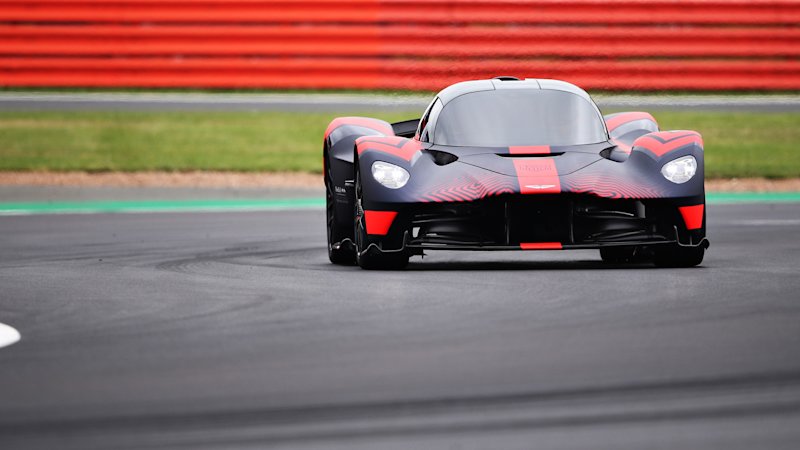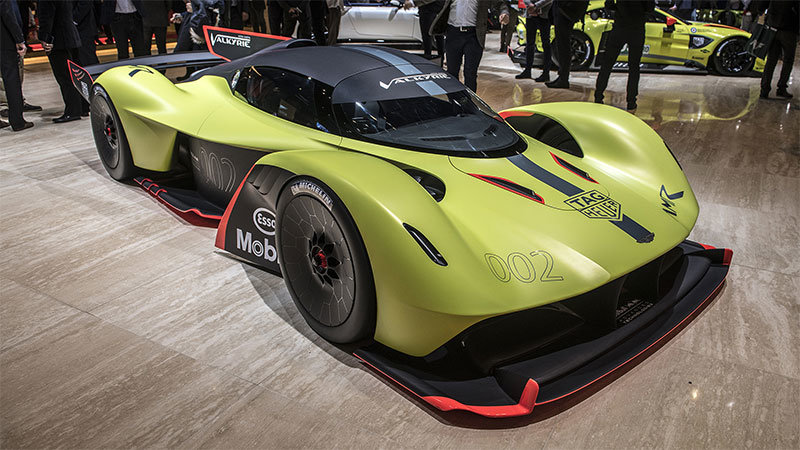Aston Martin spars with WEC over Valkyrie’s exit from racing
Confirming an earlier rumor, Aston Martin announced it has stopped developing the track-going version of the Valkyrie it planned to enter in the World Endurance Championship’s (WEC) new Hypercar category. It blamed its decision on a recent change in the regulations, but the sanctioning body responded that’s not the full story.
The British company explained it’s unhappy with the WEC’s decision to harmonize the Hypercar class with the LMDh category and the WeatherTech Sportscar Championship during the early 2020s. Without providing additional details, it declared the Valkyrie will not make its racing debut at the Silverstone track in August 2020 and it will not challenge Glickenhaus, Toyota, Peugeot and others in the 2021 edition of the 24 Hours of Le Mans. It added it’s considering canceling the program altogether, meaning the Valkyrie would never race.
Aston Martin isn’t quitting racing; far from it. It will continue to enter the Vantage GTE in WEC events around the world, and the Racing Point Formula One team will be rebranded Aston Martin after the 2020 season. The sudden and unexpected entry into Formula One led by investor Lawrence Stroll may have played a role in convincing executives to cancel the Hypercar program. Racing is expensive, and Aston isn’t doing well.
The Fédération Internationale de l’Automobile (FIA) that regulates the WEC doused cold water on Aston’s explanation. It opined the harmonization doesn’t impact the category, and it pledged to prove this claim when it releases additional technical specifications in March 2020. It instead blamed the decision to withdraw the Valkyrie from racing on the highly-publicized financial issues that have plagued Aston since 2019.
“The decision announced by Aston Martin is very regrettable but perhaps not unexpected in light of the persistent rumors over the last six months concerning the fragility of the brand’s exposure in the rapidly-evolving automotive market,” it wrote. As of writing, executives haven’t responded to these allegations.
Aston Martin and the FIA both noted they’re open to working with each other to find a solution, but the carmaker’s statement is highly ambiguous. It affirms Aston’s future presence in the racing world will be “defined by its activities at the highest level of both single-seater competition and endurance GT racing” and glaringly leaves the Hypercar category behind. To us, it sounds like the program has already been consigned to the attic.
The 2020-2021 WEC season begins in August 2020, so Aston Martin and the WEC need to quickly find a common ground if they want to salvage the Valkyrie’s racing career. Even if the car doesn’t race, the street-legal version remains on track for production, and the first deliveries are tentatively scheduled for late 2020.
Related Video:


